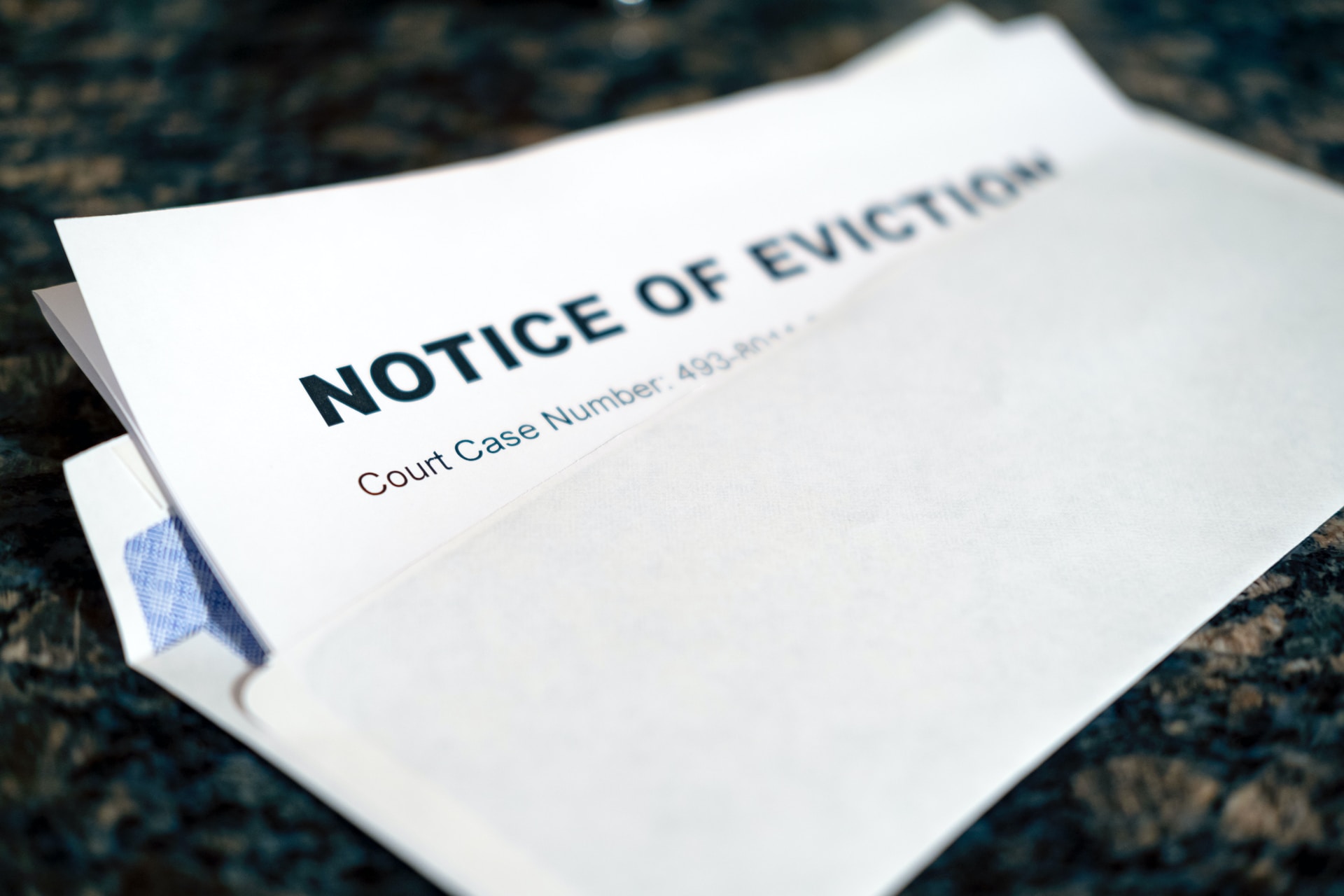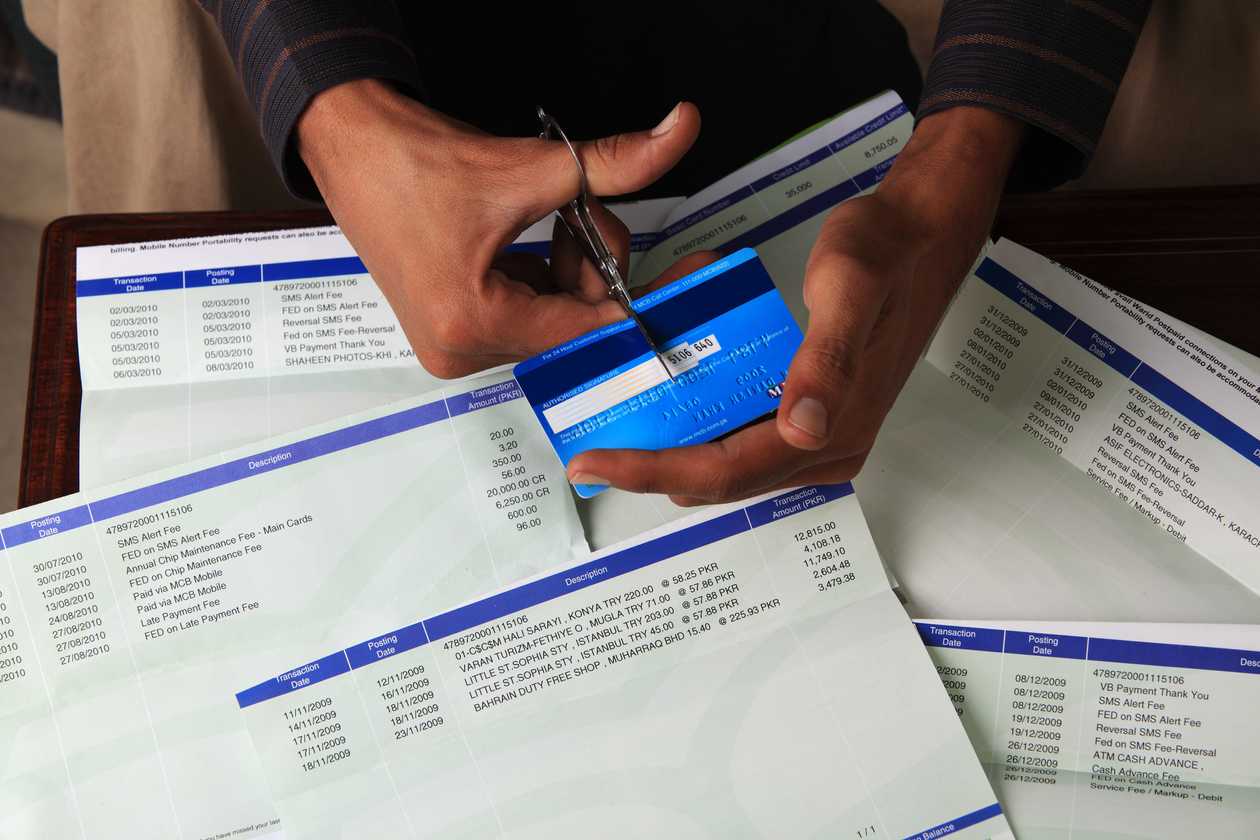

Finance
How Long Does A Settlement Stay On Your Credit
Published: January 8, 2024
Learn how long a settlement can impact your credit score and what it means for your finance. Find out all you need to know about settlement duration on your credit report.
(Many of the links in this article redirect to a specific reviewed product. Your purchase of these products through affiliate links helps to generate commission for LiveWell, at no extra cost. Learn more)
Table of Contents
Introduction
When it comes to managing our finances, few things have a greater impact on our financial well-being than our credit. A good credit score opens doors to favorable interest rates when obtaining loans and credit cards, while a poor credit score can make it challenging to secure financial opportunities. One event that can have a significant effect on your credit is a settlement.
A settlement occurs when you negotiate with a creditor to pay off a debt for less than the full amount owed. It can be an attractive option for those struggling with debt as it allows for a resolution that is more manageable in terms of repayment. However, it’s important to understand how a settlement can impact your credit score and how long it will stay on your credit report.
In this article, we will delve into the world of settlements and credit to help you understand the implications and long-term effects on your financial standing. We will explore how settlements affect your credit score, the duration of settlements on your credit report, the negative impact on creditworthiness, and strategies for rebuilding your credit after a settlement.
By understanding these key factors, you will be better equipped to make informed decisions regarding settlements and minimize any adverse effects on your credit.
Understanding Settlements and Credit
Before we dive into the impact of settlements on your credit, let’s first gain a clear understanding of what settlements are and how they relate to your overall credit picture.
A settlement is a negotiation between a debtor and a creditor where they agree on a reduced amount to settle a debt. This can occur when a debtor is unable to pay the full amount owed, and the creditor is willing to accept a lump-sum payment or installment agreement for a lower amount. While a settlement can provide relief from overwhelming debt, it does come with consequences.
In terms of credit, settlements are typically viewed as negative occurrences. When you settle a debt, it indicates to future lenders that you were unable to fulfill your financial obligations as originally agreed. As a result, it can have a detrimental effect on your credit score and creditworthiness.
It’s important to note that not all debts are eligible for settlement. Some creditors may be more willing to negotiate while others may not entertain the option at all. Additionally, settlements are typically more common with unsecured debts, such as credit card debt or medical bills, rather than secured debts like mortgages or car loans.
Now that we have a basic understanding of settlements, let’s explore how they can impact your credit score.
How Settlements Affect Your Credit Score
Settling a debt can have a significant impact on your credit score. While the exact impact may vary depending on your individual credit history, there are a few key factors to consider.
When you reach a settlement agreement with a creditor, the creditor will typically update your credit report to reflect the settled status of the debt. This notation can have a negative impact on your credit score, as it indicates that you were unable to fulfill your original payment obligations.
The credit scoring models used by lenders take into account several factors when calculating your credit score. These factors include payment history, credit utilization, length of credit history, types of credit, and new credit inquiries. A settlement can impact multiple factors, ultimately resulting in a lower credit score.
One of the primary ways a settlement affects your credit score is through your payment history. Payment history makes up a significant portion of your credit score, and settling a debt is essentially a form of late or partial payment. This can lower your credit score, especially if you had a history of on-time payments prior to the settlement.
Credit utilization is another factor that can be impacted by settlements. Credit utilization refers to the amount of credit you are using compared to your total credit limit. When you settle a debt, it may result in a lower credit limit for that particular account, which can increase your credit utilization ratio. A high credit utilization ratio can lower your credit score.
Additionally, the settled status of a debt may stay on your credit report for a certain period of time, which we will discuss in more detail in the next section. This notation of a settled debt can be seen by future lenders and may impact their decision to extend credit to you. It can also affect the terms and interest rates offered to you.
It’s important to be aware of these potential consequences before deciding to pursue a settlement. While settling a debt may provide some relief in the short term, it’s crucial to consider the long-term impact on your credit score and financial future.
Duration of Settlements on Your Credit Report
When it comes to how long a settlement will stay on your credit report, it’s essential to understand the time frame involved. The duration can affect your creditworthiness and future financial opportunities.
In general, a settled debt will remain on your credit report for seven years from the date of the initial delinquency. This is the point at which you first fell behind on payments before eventually settling the debt. During this time, the settled status will be visible to lenders and can impact their decision-making process when considering your creditworthiness.
It’s important to note that the impact of a settlement on your credit report diminishes over time. The negative impact of a settlement on your credit score will be most significant in the months immediately following the settlement. As time passes, its influence will gradually lessen.
Once the seven-year duration has passed, the settled debt will be removed from your credit report. This means it will no longer factor into your credit score calculation or be visible to lenders when evaluating your creditworthiness.
It’s also worth noting that while the settled debt may be removed from your credit report after seven years, the original delinquency date associated with the debt will still remain. This delinquency date can impact your credit score and overall credit history, even after the settlement is no longer reported.
While the duration of a settlement on your credit report can be significant, it’s important to keep in mind that it’s not the only factor lenders consider when evaluating your creditworthiness. Lenders also take into account your current payment history, credit utilization, and other aspects of your credit profile when making lending decisions.
Now that we understand the duration of settlements on your credit report, let’s explore the negative impact settlements can have on your creditworthiness.
Negative Impact of Settlements on Creditworthiness
Settling a debt can have a negative impact on your creditworthiness. While it may provide temporary relief from overwhelming debt, it’s important to understand the potential consequences on your financial standing.
One of the primary negative impacts of settlements on creditworthiness is the reduction in your credit score. As mentioned earlier, when you settle a debt, it indicates to future lenders that you were unable to meet your original payment obligations. This can result in a lower credit score, making it harder for you to access new credit or loans at favorable terms.
Furthermore, a settled debt can raise red flags for lenders when reviewing your credit history. It may indicate a history of financial difficulties and suggest a higher risk of defaulting on future obligations. As a result, lenders may be more cautious in extending credit to you or may require higher interest rates and stricter terms.
Another potential negative consequence is the impact on your creditworthiness when applying for housing or employment. Many landlords and employers perform credit checks to assess an applicant’s financial responsibility and reliability. A settlement on your credit report can raise concerns and potentially affect your chances of securing a lease or job offer.
In some cases, settling a debt may also result in the creditor reporting the settled amount as taxable income to the IRS. This means you may be required to pay taxes on the forgiven portion of the debt, adding to your financial burden.
It’s important to be mindful of these potential negative impacts before deciding to pursue a settlement. While it may provide immediate relief, it’s crucial to assess the long-term consequences and explore alternative options, such as debt management or debt consolidation, that may have a less detrimental effect on your creditworthiness.
Now, let’s move on to discussing strategies for rebuilding your credit after a settlement.
Rebuilding Credit After a Settlement
Rebuilding your credit after a settlement is crucial to improving your overall financial health. While a settlement can have a negative impact on your creditworthiness, there are steps you can take to start rebuilding your credit score.
1. Pay Your Bills on Time: One of the most important factors in rebuilding your credit is establishing a consistent pattern of on-time payments. Make sure to pay all your bills, including credit cards, loans, and utilities, by their due dates. Set up automatic payments or reminders to help you stay on track.
2. Maintain Low Credit Card Balances: Keeping your credit card balances low compared to your credit limit is essential for rebuilding your credit. Aim to utilize no more than 30% of your available credit. Pay off your credit card balances in full each month, if possible, to avoid interest charges.
3. Build Positive Credit History: If you don’t already have active credit accounts, consider opening a secured credit card or becoming an authorized user on someone else’s credit card. Use these accounts responsibly and make timely payments to demonstrate your ability to manage credit effectively.
4. Monitor Your Credit Report: Regularly review your credit report to ensure accuracy and identify any discrepancies or errors. This will help you address any issues promptly and maintain a clean credit history.
5. Diversify Your Credit: Having a mix of different types of credit, such as credit cards, installment loans, and mortgages, can positively impact your credit score. If you don’t already have a diverse credit portfolio, consider diversifying it slowly and responsibly over time.
6. Be Patient: Rebuilding your credit takes time and patience. It won’t happen overnight, but by consistently practicing responsible credit habits, you can gradually improve your credit score over time.
It’s important to note that rebuilding your credit after a settlement requires discipline and commitment. It may take some time before you see significant improvements in your credit score. However, by following these strategies and maintaining good financial habits, you can work towards a healthier credit profile.
Remember, it’s crucial to learn from past mistakes and use the settlement as a stepping stone towards better financial management. Seek professional guidance if needed and stay dedicated to your financial goals.
Conclusively, while a settlement can have a temporary impact on your creditworthiness, it doesn’t have to define your financial future. With time, responsible credit management, and a proactive approach, you can rebuild your credit and regain financial stability.
Conclusion
Settlements can be a lifeline for those struggling with debt, providing a way to resolve outstanding obligations and regain control of their finances. However, it’s important to understand the potential impact on your credit and take steps to mitigate any negative consequences.
A settlement can lower your credit score and remain on your credit report for seven years. This can make it more challenging to obtain new credit, secure favorable terms, and may even affect housing and employment opportunities. However, with time and effort, you can rebuild your credit and improve your creditworthiness.
To rebuild your credit after a settlement, focus on making timely payments, maintaining low credit card balances, building positive credit history, monitoring your credit report, diversifying your credit, and maintaining patience. By practicing responsible credit habits and demonstrating financial responsibility, you can gradually improve your credit score and regain financial stability.
Remember, a settlement is just one chapter in your financial journey. Use it as an opportunity to reflect, learn, and make positive changes in your financial management. Seek guidance from financial professionals if needed and stay committed to your long-term financial goals.
While a settlement may have temporary repercussions, it doesn’t define your financial future. By taking proactive steps to rebuild your credit and maintain responsible financial habits, you can overcome the challenges and achieve a brighter financial future.














